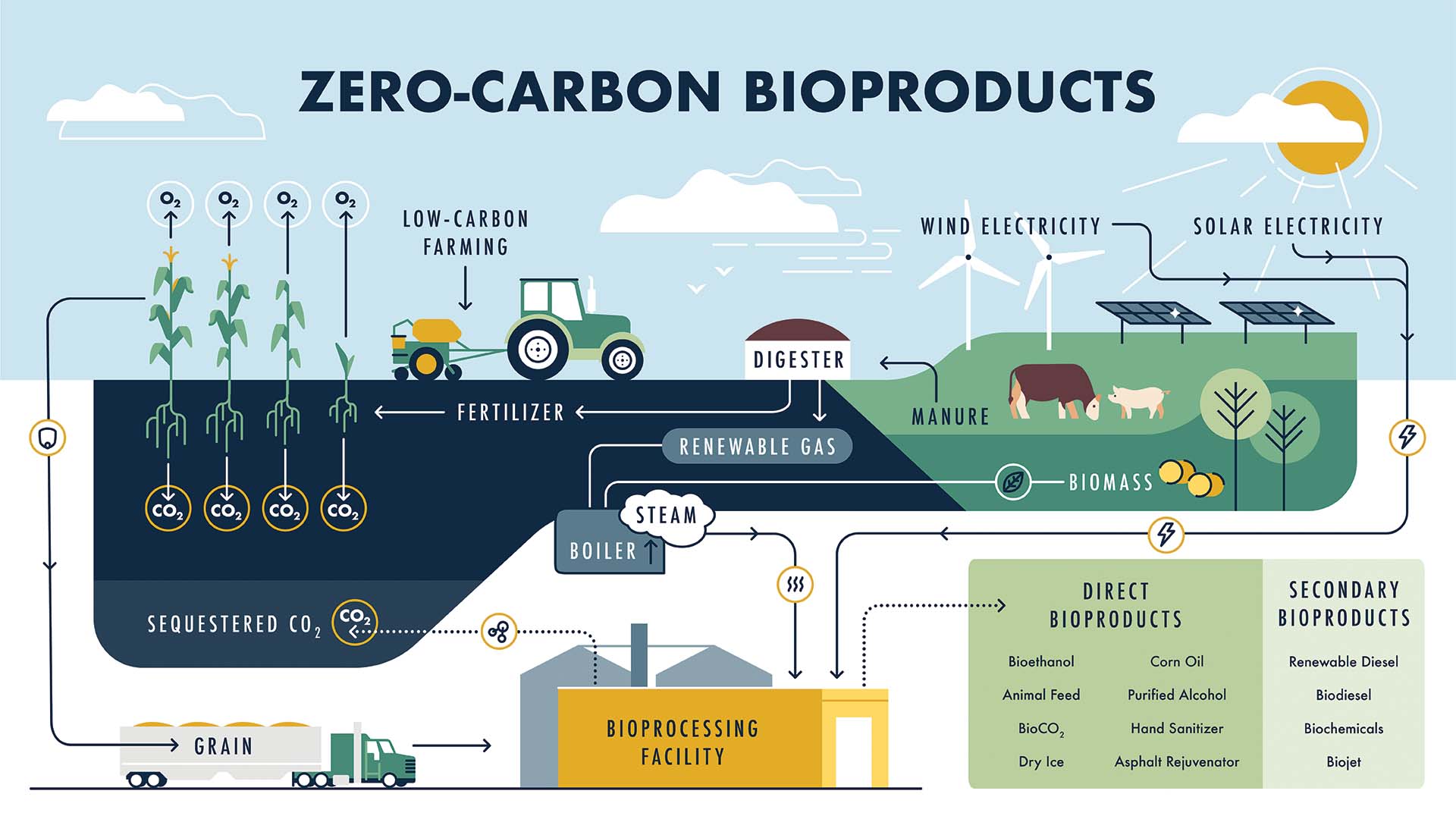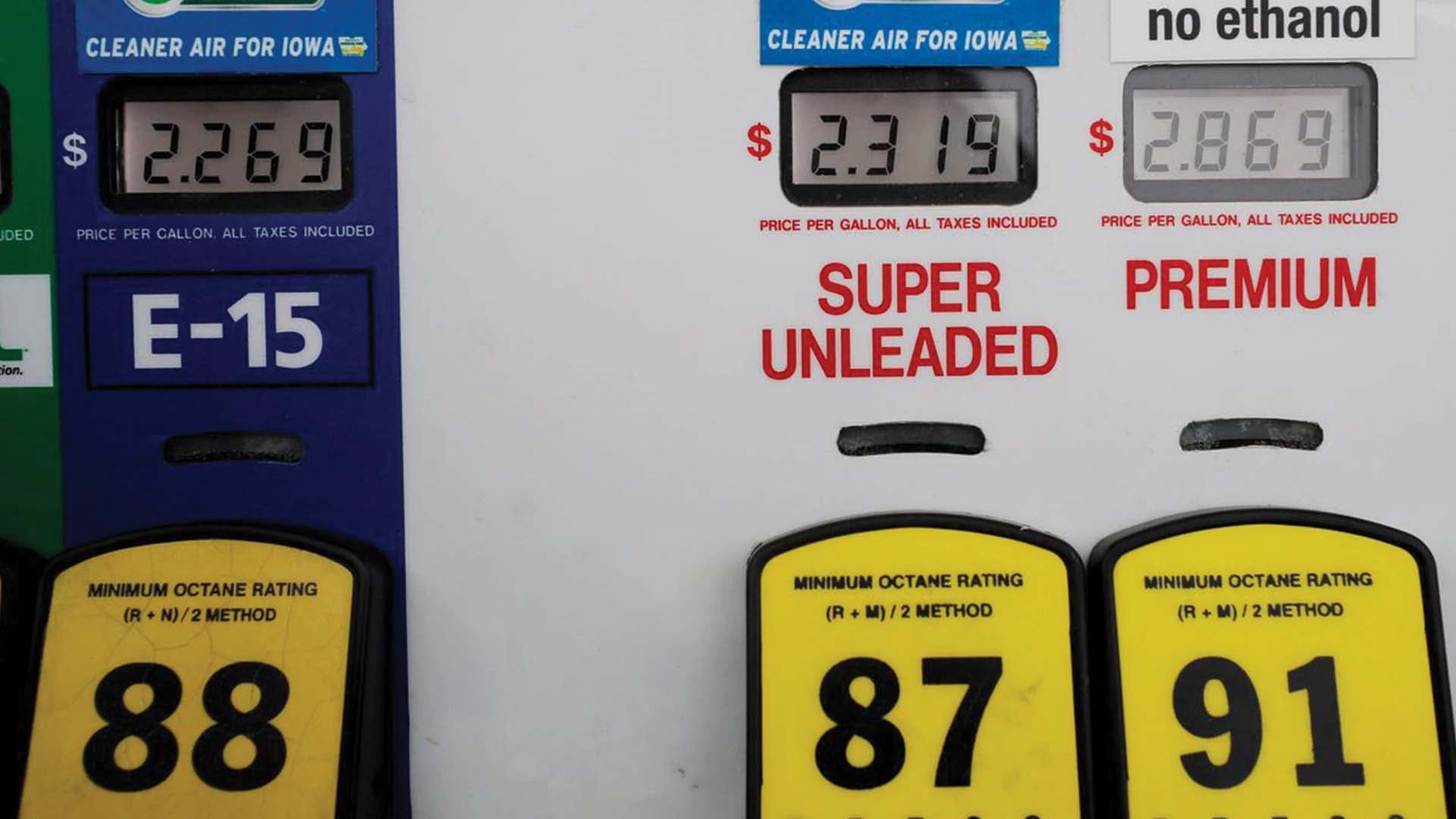Gas prices in the United States have skyrocketed, nearing the highest levels in the country’s history. On March 6, the national average for a gallon of gas hit $4.009, and in the week of March 21st, the national average raised to $4.25—the highest it has been since 2008. One possible solution? The affordable, readily available, and American-made biofuels.
What are biofuels?
Biofuels are exactly what they sound like: liquid fuels created from renewable, biological compounds and other natural products. The grains are ground into flour and ferment for a few days, sometimes with the help of enzymes.
The most common biofuel is ethanol, which is an alcohol fuel made from sugars found in grains like corn, sorghum, and barley. Most of the fuel ethanol used in the United States is distilled from corn, but scientists are working on ways to make ethanol from all parts of plants and trees.
Benefits of Biofuel
Bioethanol is a clean-burning, renewable alternative to fossil fuel that can be purchased right at your local pump. Bioethanol has up to 90 percent less carbon than the toxic additives it replaces. As a result, global bioethanol production and use reduce greenhouse gas emissions by up to 110 million metric tons. That’s equivalent to taking 20 million vehicles off the road each year!
When blended with gasoline, ethanol increases gasoline’s octane ratings, reduces production cost by volume, and facilitates compliance with emissions and fuel efficiency standards. Increasing the amount of bioethanol in the fuel supply also reduces the benzene, toluene, and xylene (BTX) used in gasoline, which are expensive aromatic hydrocarbons that make up an average of 20 percent of each gallon of gasoline.
The easiest way to further increase bioethanol usage, and thus lessen your environmental impact, is with E15. The EPA defines E15 as a fuel blend of 15 percent ethanol and 85 percent gasoline. In 2011, EPA approved E15 for use in light-duty conventional vehicles of the model year 2001 and newer, along with all flexible fuel vehicles.

Companies like POET, the world’s largest producer of biofuel, are striving to make it even cleaner. For example, POET’s 2021 sustainability report announced its plan to reduce the carbon intensity of bioethanol by 70 percent compared to traditional gasoline by 2030 and pledged its bioprocessing facilities to achieve carbon neutrality by 2050. POET produces about 3 billion gallons of ethanol annually, using about 1 billion bushels of corn from 50,000 farmers.
How Biofuels Can Solve The Gas Crisis
The primary reason that biofuels can save the national gas crisis is their affordability. As interchangeable octane components, bioethanol historically beats the price of BTX. According to a recent pricing report from the U.S. Grains Council, the average cost of bioethanol ($2.64) is 34.5% less than the average weighted cost of BTX ($4.03).

Bioethanol’s savings advantage is also directly reflected in the price Americans pay at the pump. Based on retail prices reported to the Renewable Fuels Association, from January 2020 through February 2022, the average discount for E15 relative to E10 was approximately $0.12 per gallon. According to a 2021 report from ABF Economics, “…the average U.S. household spends nearly $2,800 on gasoline annually. Adopting an E15 standard nationwide will save consumers $12.2 billion annually or nearly $96 per household.”
Alongside affordability, E15 is also a better value compared to standard E10 gasoline because both fuels share nearly identical fuel economies. U.S. Department of Energy test program data also “showed no statistically significant loss of vehicle performance (emissions, fuel economy, and maintenance issues) attributable to the use of E15 fuel compared to straight gasoline.”
Studies conducted by the University of California, Riverside indicate that E15 may increase fuel economy by as much as 6 percent, and at worst may decrease fuel economy by 1 percent. Studies indicating higher fuel economy for E15 were conducted under more realistic driving conditions.
As Doug Berven, POET’s Vice President of Corporate Affairs told Tomorrow’s World Today,
“Now more than ever, America needs to assert its energy independence, and American-made biofuels are a critical step to help us get there. POET produces homegrown, sustainable biofuels that are more affordable, readily available, and compatible with the current infrastructure and vehicles on the road today. The facts show that the more bioethanol we blend into our fuel, the more Americans and our economy benefit”.
For more information about POET and biofuels, check out the full Tomorrow’s World Today episode HERE.







